Course modules
Discover the building blocks of your programme
Further guidance on modules
Modules are designated core or optional in accordance with professional body requirements, as applicable, and LJMU’s Academic Framework Regulations. Whilst you are required to study core modules, optional modules provide you with an element of choice. Their availability may vary and will be subject to meeting minimum student numbers.
Where changes to modules are necessary these will be communicated as appropriate.
Core modules
Understanding deafblindness through Functional Sensory Assessment
15 credits
15 credits
This module will develop an understanding and knowledge of vision and hearing impairments, their impact on three key development areas and how to functionally assess them, as well as the other senses, in order to improve access.
Communication and accessing the world for deafblind learners
15 credits
15 credits
This module will develop an understanding, knowledge and practical application of how to assess a child with MSI communication abilities. How to plan to support and develop their communication. Taking into consideration their sensory impairment, conceptual understanding to positively impact access to education, relationships etc.
Deafblindness a unique disability – first steps
15 credits
15 credits
This module begins to examine the unique disability that is deafblindness from developing knowledge and understanding the impact of a multi-sensory impairment on all aspects of life.
Deafblindness a unique disability – moving on
15 credits
15 credits
This module continues to examine the unique disability that is deafblindness from developing knowledge and understanding the impact of a multi-sensory impairment on all aspects of life.
Enabling independence for deafblind children and young people
15 credits
15 credits
This module will focus on understanding the impact a MSI has on developing independence skills and personal agency as well as orientation and mobility skills. It will further look at strategies to support interventions to develop the child’s skills in these areas.
Holistic education of deafblind children and young people
15 credits
15 credits
This module will develop knowledge and experience of the network of people who may be involved in working with and supporting a young person with MSI. It will establish good working protocols and methods of combining information to support a child’s learning and development.
Multi-sensory Impairment Placement
0 credits
0 credits
This module covers the teaching placement requirement for students on the QTMSI programme.
Developing effective teachers of learners with multi-sensory impairment
15 credits
15 credits
This module offers the practical opportunity to reflect on experiences working with children and young people (CYP) with MSI in a setting (or settings) other than their own, focusing on the practical application of the theory and strategies learnt over the course.
Educator of the Multi-sensory Impaired
15 credits
15 credits
This module tests students' knowledge and experience of teaching learners with deafblindness / multi-sensory impairment.
Qualified Teacher of the Multi-Sensory Impaired
15 credits
15 credits
This module tests students knowledge and experience of teaching learners with deafblindness / multi-sensory impairment.
Optional Modules
Understanding deafblindness through Functional Sensory Assessment
15 credits
15 credits
This module will develop an understanding and knowledge of vision and hearing impairments, their impact on three key development areas and how to functionally assess them, as well as the other senses, in order to improve access.
Communication and accessing the world for deafblind learners
15 credits
15 credits
This module will develop an understanding, knowledge and practical application of how to assess a child with MSI communication abilities. How to plan to support and develop their communication. Taking into consideration their sensory impairment, conceptual understanding to positively impact access to education, relationships etc.
Deafblindness a unique disability – first steps
15 credits
15 credits
This module begins to examine the unique disability that is deafblindness from developing knowledge and understanding the impact of a multi-sensory impairment on all aspects of life.
Deafblindness a unique disability – moving on
15 credits
15 credits
This module continues to examine the unique disability that is deafblindness from developing knowledge and understanding the impact of a multi-sensory impairment on all aspects of life.
Enabling independence for deafblind children and young people
15 credits
15 credits
This module will focus on understanding the impact a MSI has on developing independence skills and personal agency as well as orientation and mobility skills. It will further look at strategies to support interventions to develop the child’s skills in these areas.
Holistic education of deafblind children and young people
15 credits
15 credits
This module will develop knowledge and experience of the network of people who may be involved in working with and supporting a young person with MSI. It will establish good working protocols and methods of combining information to support a child’s learning and development.
Developing effective teachers of learners with multi-sensory impairment
15 credits
15 credits
This module offers the practical opportunity to reflect on experiences working with children and young people (CYP) with MSI in a setting (or settings) other than their own, focusing on the practical application of the theory and strategies learnt over the course.
Course tutors

Matt McLain
Featured tutors job title
Career paths
Further your career prospects
LJMU has an excellent employability record with 96% (HESA 2018) of our postgraduates in work or further study six months after graduation. Our applied learning techniques and strong industry connections ensure our students are fully prepared for the workplace on graduation and understand how to apply their knowledge in a real world context.
Tuition fees and funding
Entry requirements
You will need:
Qualification requirements
Undergraduate degree
An Honours degree (or its equivalent) in any subject.
Further information
-
Extra Requirements
Qualified Teacher Status (QTS) or Qualified Teacher Learning and Skills (QTLS).
Employment history as an educational practitioner working with sensory impaired learners.
International requirements
IELTS
Applicants whose graduate study or relevant experience was undertaken in languages other than English, will need to demonstrate English language proficiency to the level of an IELTS score of at least 6.5 (minimum of 5.5 in each component).
Further information
-
Extra Requirements
Qualified Teacher Status (QTS) or Qualified Teacher Learning and Skills (QTLS).
Employment history as an educational practitioner working with sensory impaired learners.
How to apply
Securing your place at LJMU
Your university life
From accommodation and academic support to clubs and societies. Find out what LJMU has to offer.
Related Links
Talk to our students
Connect with a current LJMU student for advice and guidance on university life, courses and more.
See what our students are saying
At LJMU we want you to know you’re making the right choice by studying with us. You can see what our students are saying about their experience with us through their reviews on the following websites:
Related Links
News and views
Browse through the latest news and stories from the university
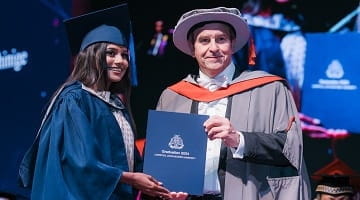
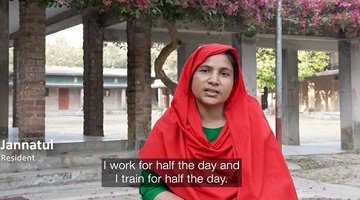

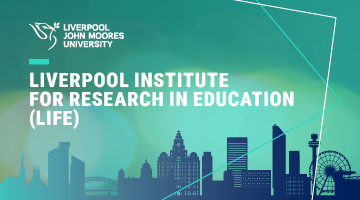
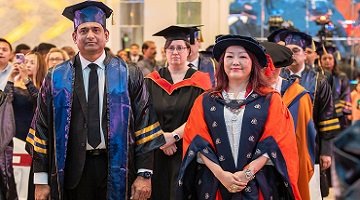

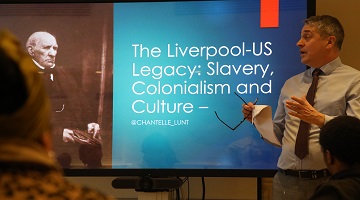
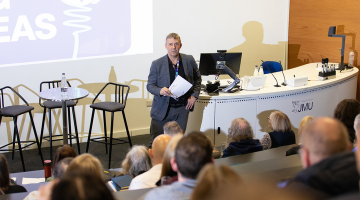

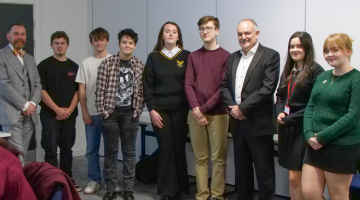
The University reserves the right to withdraw or make alterations to a course and facilities if necessary; this may be because such changes are deemed to be beneficial to students, are minor in nature and unlikely to impact negatively upon students or become necessary due to circumstances beyond the control of the University. Where this does happen, the University operates a policy of consultation, advice and support to all enrolled students affected by the proposed change to their course or module.















